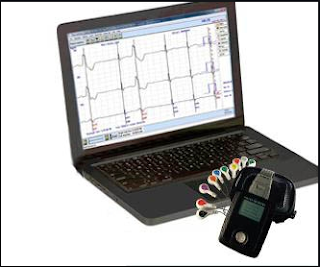Cardiac arrhythmias, commonly known as heart arrhythmias or irregular heartbeat, are a group of heart conditions that deal with an irregular heartbeat. People with arrhythmias may experience faster heartbeat (tachycardia), slow heartbeat (bradycardia), or irregular heartbeat (referred to as flutter or fibrillation) or early heartbeat (premature contraction). The condition occurs when the electrical signals responsible for heart contraction or heartbeat stops working properly.
Is Cardiac Arrhythmias Dangerous?
Most cardiac arrhythmias are harmless. However, if they are a result of a weak or damaged heart, they can be serious and may even prove to be fatal. Often, arrhythmias do not have symptoms, which is why monitoring you and your patients' heartbeat using ambulatory ECG regularly is crucial.
Why use ambulatory ECG?
Ambulatory ECG monitoring is the most preferred technology employed by the majority of medical professionals for the evaluation of patients with symptoms indicative of heart arrhythmia or conduction abnormality. Contrary to the standard electrocardiogram (ECG), which only gives a brief sample of cardiac electrical phenomena over 10-15 seconds, ambulatory ECG displays ECG data over a long period, hence enabling professionals for the assessment of dynamic and transient cardiac electrical activity.
Bottom Line
Despite the harmless nature of cardiac arrhythmias, it’s important not to overlook the condition, especially if your patients have diabetes, hypertension or have a history of stress, drug abuse or smoking.
If you are looking for a PC based ambulatory ECG system, CardioHolter™ is a compact, comprehensive and feature-rich monitoring system you should consider. It’s fully interpretive with pacemaker detection and has a 3 channel display screen with an event button for reliable and accurate reporting.


